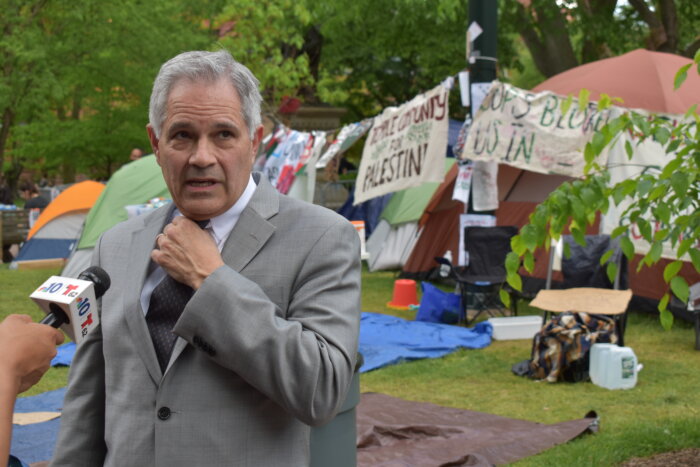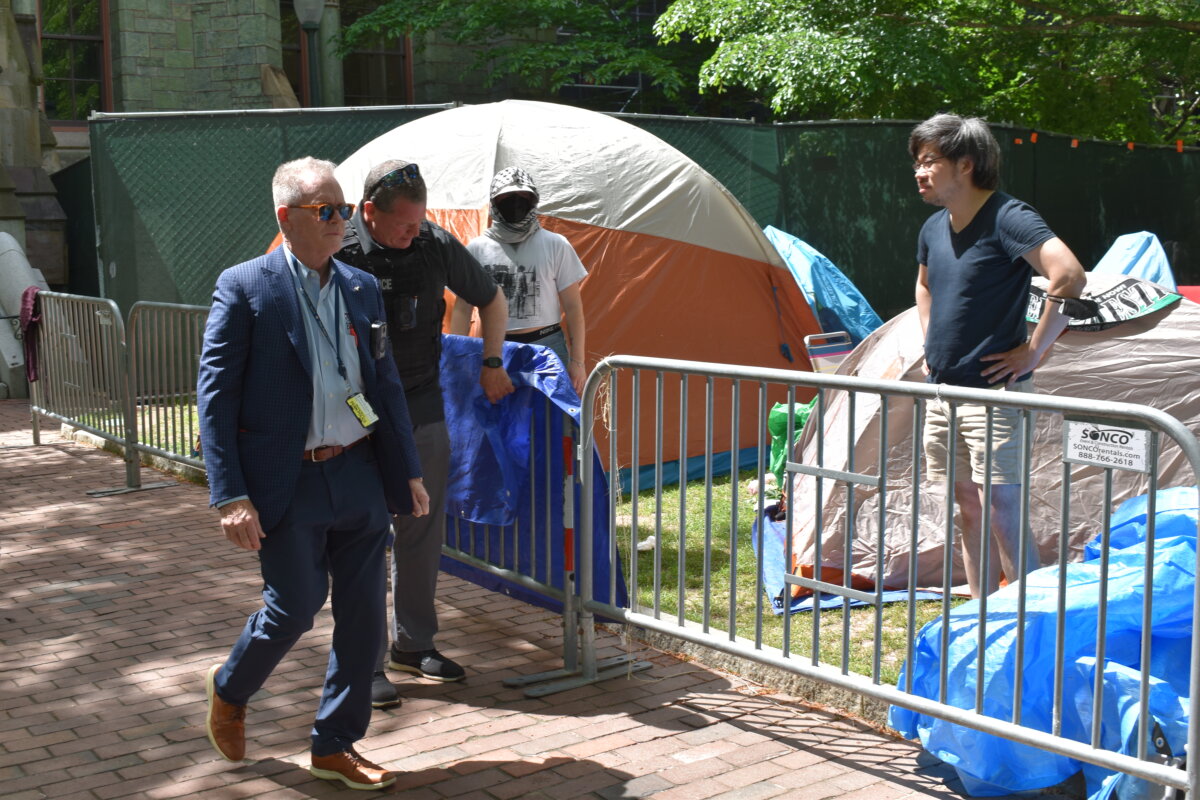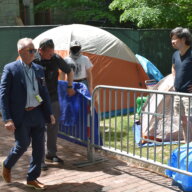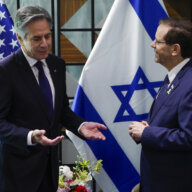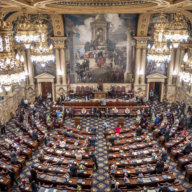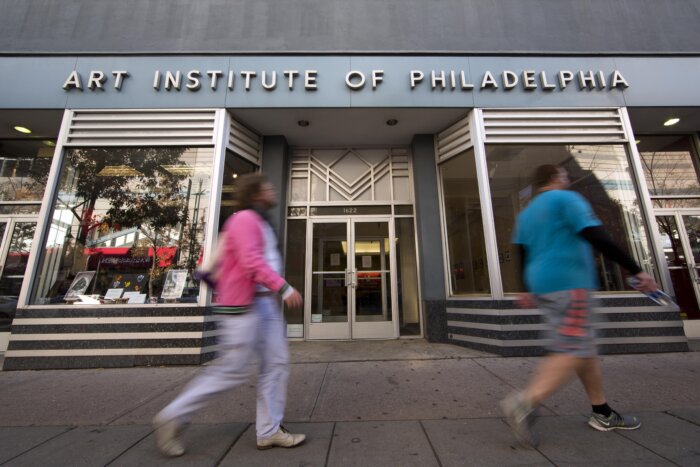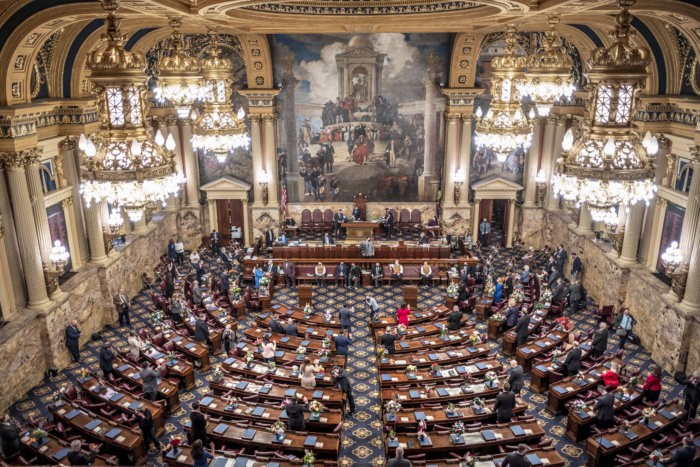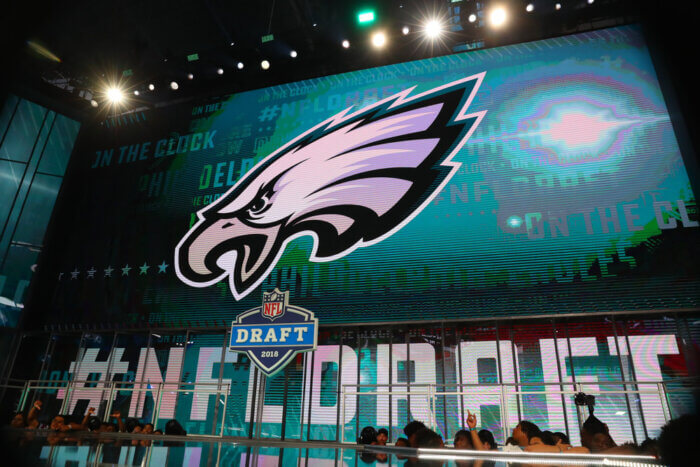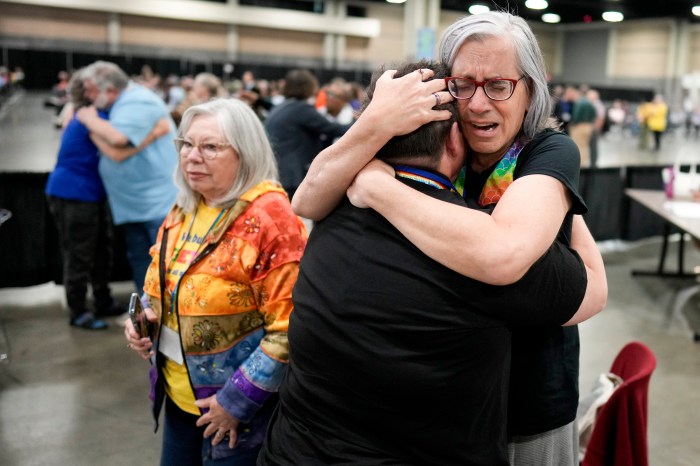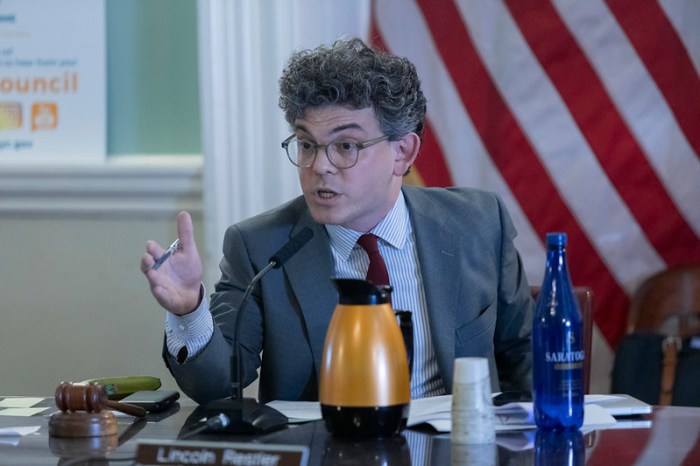A man was arrested after allegedly spraying a chemical substance inside the pro-Palestine encampment at the University of Pennsylvania, and police officers removed some banners from the exterior of the site, as Philadelphia’s most visible Gaza demonstration continued into its seventh day on Wednesday.
District Attorney Larry Krasner and City Councilmember Jamie Gauthier visited camp participants Wednesday, and protest organizers said a second meeting with Penn administration was unfruitful.
At around lunchtime Wednesday, someone entered the barricaded encampment with what appeared to be a pesticide sprayer and spread a chemical onto tents, banners and a food table, camp members said.
Campus officers led the suspect away in handcuffs, and protesters began attempting to clean the area. Some complained of respiratory issues and nose, eye and throat irritation. It was not immediately clear what type of liquid was in the spray pump, though camp leaders later said it was a sulfurous solution similar to “skunk spray.”
Krasner told reporters that Penn authorities charged him with a summary offense but said the DA’s Office has no further information. The man is not believed to be connected to the college or the encampment. University representatives did not return a request for comment.
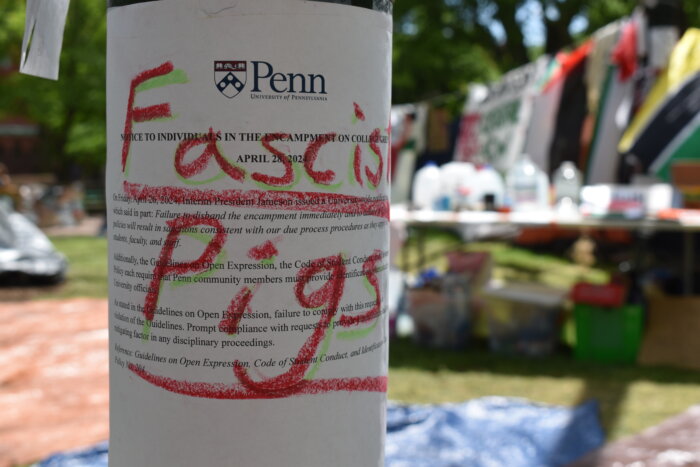
Earlier, several Penn officers cut zip ties connecting sections of the barricades and told people to remove banners on the outer edge of the encampment, which is taking up a section of College Green.
On Wednesday, university officials began attempting to check for school identification cards among those inside the encampment. Not all participants are enrolled in the Ivy League college; a portion are from other schools, including Temple University, and others are Philadelphia area residents showing up to support the cause.
Penn also said several internal disciplinary cases have been opened against students, accusing them of violating university policies.
Camp leaders have dismissed the actions as scare tactics meant to intimidate students and dissuade others from joining a peaceful demonstration against the war in the Middle East.
“A lot of the students are risking their futures,” said Nneka Azuka, a camp spokesperson. “They’re risking their degrees. I have a couple of friends who have been sanctioned by the university for previous actions that they took, and they’re scared.”
Protest organizers – both students and faculty – met with Penn President Larry Jameson and Provost John Jackson for a second negotiating meeting Tuesday evening, camp representatives said.
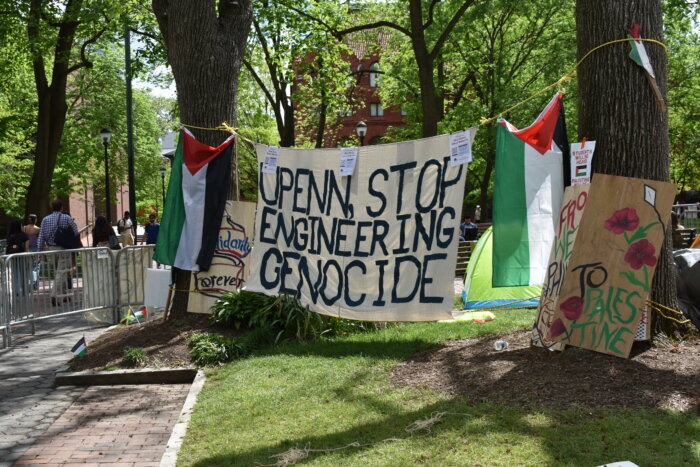
Leaders of the demonstration said they will not engage in talks until the administrators withdraw the disciplinary cases; stop threatening to evict campers; and prohibit law enforcement from entering the area, among other demands.
“They’re stalling,” Azuka told Metro. “They’re holding off until graduation.”
Groups of students, in caps and gowns and dresses and suits, were posing for graduation photographs around the University City campus Wednesday. Penn’s commencement ceremony is scheduled for later this month.
Azuka, who lives in Germantown and is not a Penn student, said demonstrators are making preparations to continue the encampment beyond the end of the academic year.
“Seeing these pop up all over the country, it feels like the needle will be moved with these actions as opposed to reposting on social media or just shouting at City Hall,” Azuka said. “This feels like something real and effective.”
A Penn student, who declined to provide her name, said that, as a Puerto Rican, she relates to those living under occupation in Gaza.
“I don’t think silence is the solution,” she told Metro as she painted a sign for the protest.
A Temple sophomore participating in the encampment said she felt solidarity seeing encampments form on campuses around the country. But she was tired of people dismissing the protests.
“I feel like people still don’t take us seriously,” said the student, who also wanted to remain anonymous. “And they still kind of do the, ‘They’re just like crazy college kids, and they are just really idealistic’ and stuff like that.”
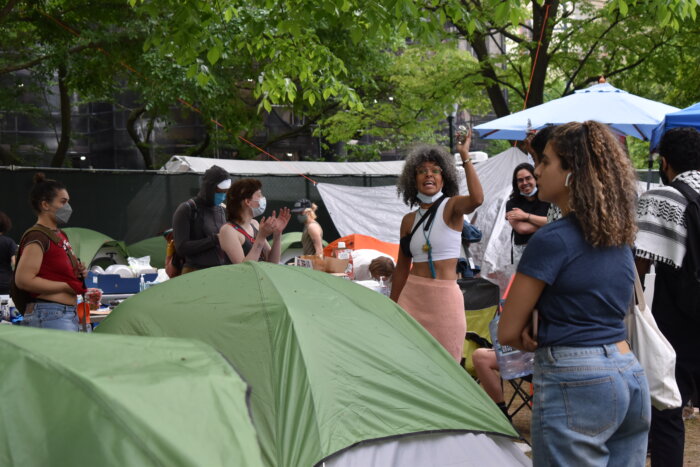
Meanwhile, a group of students affiliated with Penn Hillel, a Jewish center, monitored the demonstration.
Penn sophomore Lillie Abella said she felt uncomfortable when she heard camp participants chatting “long live the intifada” and “resistance is justified when people are occupied” during prior trips to the site.
“To Jewish students at least, it’s threatening,” she told Metro.
Benn Messafi, a Penn freshman, said he believes the school’s leaders should follow through on their demand that the encampment disband immediately.
“I feel abandoned as a Jewish student,” Messafi said. “We’re not going to be walking around in pure daylight and going to be beat up. But we feel that when we walk by here that this encampment can really do anything, especially spewing rhetoric endorsing terrorist organizations.”
Gauthier, who represents University City, said she has previously met with Jewish students but wanted to visit the encampment to support the protestors. She also told reporters that she has attempted — so far unsuccessfully — to discuss the situation with Jameson.
“They have a right to protest,” Gauthier said. “They have a right to free speech, and I’m hoping that Penn recognizes that. And they also have the right to do that without penalty.”
Krasner stressed that Penn and Philadelphia should avoid the response to similar encampments at Columbia University in New York and elsewhere, where law enforcement has clashed with demonstrators.
“The First Amendment comes from here,” he added. “This is Philadelphia. We don’t have to do stupid like they did at Columbia.”
